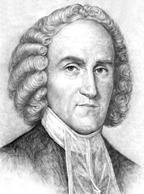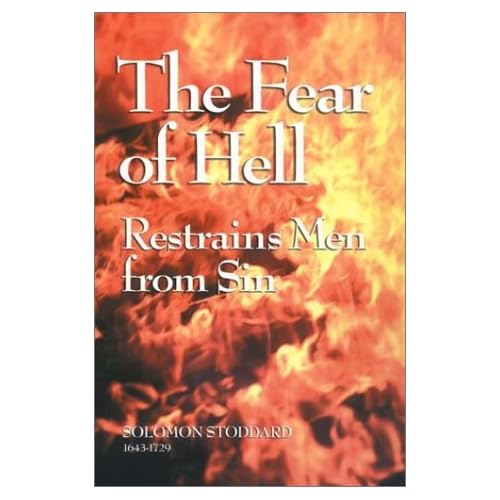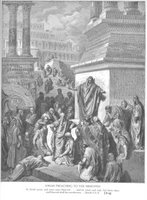Only God is Great!
At the funeral of France's Louis XIV, the cathedral of Notre Dame was packed with mourners, each one paying final tribute to one they all considered the greatest of French kings. The cathedral was dark with only a few candles and lamps here and there. But on a tall pedestal next to the pulpit, one large very tall candle was lit to symbolize the greatness of the king and also to illuminate his gold casket. At the appointed time, Cardinal Massilion, the court preacher, stood to address the assembly. But as he rose to do so, he leaned over and snuffed out that large candle. Then he stood up straight and said, "Only God is great."
As a huge sports fan the term “great” is often used when describing talented athletes. I have over the years had posters of my favorite guys, baseball cards, autographed balls and photos, t-shirts, and even named my boys (to some extent) reflecting upon these men. I wonder when an interest or admiration in someone turns into worship. Please don’t get me wrong. I still love sports and this is not a mandate to stop watching USC Trojan football games.
I want to suggest that our eyes can easily turn from the Almighty. In one area of life it’s sports, in another it’s our wife, or our career. Augustine said, “That which you love most is your god!” If only God is great then why do we allow our ourselves to think in the following ways:
-I love my laptop and the easy programs it has, Bill Gates is great
-Donald Trump makes millions, he’s a great businessman
-USC football wins national titles; Pete Carroll is a great coach
-My father in law has a nice house and goes on vacations, he’s a great provider
-My wife is a gourmet cook and she keeps house, she’s a great companionI like
-Tim McGraw’s music, he’s a great singer
I could go on forever with the list of people who are considered great nowadays and for different reasons. What I have found is that all of the sudden my life revolves around these “people” who I consider great. I want to be successful like them, I want to have their money, I want to have their talent, and I want to be like them. As the old Gatorade commercial goes, “If I could be like Mike.”
Why would I ever want to be like “a man?” The Christian mandate is to be Christ-like. Matthew 16:24 states, “If anyone wishes to come after Me, he must deny himself, take up his cross and follow Me.” Who are we following? To my shame I find myself following the wrong people for the wrong reasons.
For months now I’ve been reflecting upon James 4:4 and the concept cheating on the Lord with the love of the world. The language could not be any stronger here. “You adulteresses, do you not know that friendship with the world is hostility toward God? Therefore whoever wishes to be a friend of the world makes himself an enemy of God. When we consider men of the world to be great we are allowing our hearts to befriend the world. We run the danger of cheating on God.
Don’t allow yourself to make heroes of these men. Abraham, Joseph, Daniel, Paul, and Jesus are hero’s not men of the world. Seek to have the obedience of Abraham, the trust of Daniel, the hope of Joseph. Envy Paul’s secret of contentment in the income he has not the wealth of men who have made money their god. Strive to be a husband like Ephesians 5 not some movie star. Be a faithful father who teaches his son the Lord’s statues like in Deut. 6 rather than hoping you were a famous athlete that you children could brag about.
If we continue to allow other things in our lives to seem great then God will seem less great. Someday God will be very small in relationship to all the great men you allow yourself to esteem.
Only God is Great!



























